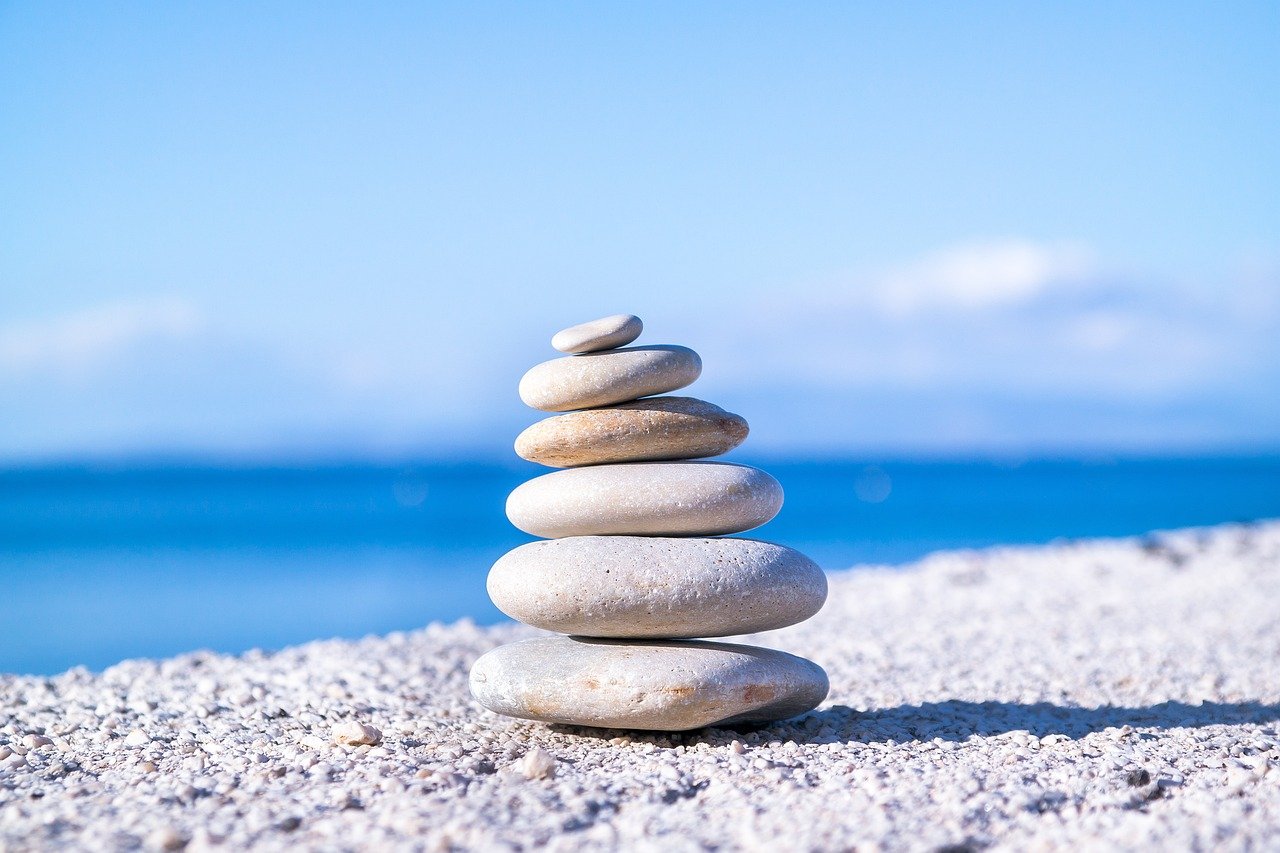THE POWER OF RELAXATION
We live in a fast-paced world. One where lives are often governed by emails, reminders, to-do lists, and deadlines; or dictated by external demands and expectations - be it from families, peers or social media. A world where chasing a hypothetical perfect future sometimes becomes more important than enjoying the simple moments we have in the present. No wonder stress and anxiety are on the rise and that ‘74% of UK adults have felt so stressed at some point over the last year that they felt overwhelmed or unable to cope’.
Relaxation is the jewel of well-being. In fact, rarely has a concept been embraced so entirely by so many. And clinical research all seems to point in the same way: relaxation is good for you! Yet, it is too often put aside. How many times have I heard: ‘I don’t have time to relax’, ‘I have other (more important) things to do’… Beware mistake, mistake!
Maya Angelou once said: ‘Each person deserves a day away in which no problems are confronted, no solutions searched for. Each of us needs to withdraw from the cares which will not withdraw from us.'
And to me, this is exactly what relaxation is about. This is what it’s here for. It is now widely acknowledged by the scientific body that practising relaxation is not only a great way of dealing with increasing stress and anxiety; it also improves our overall quality of life.
So why is relaxation so good?
Here are a few examples of the very many benefits of relaxation:
- Relaxation activates the parasympathetic nervous system, and that’s good!
Whilst the sympathetic nervous system is, despite being a fantastic survival instinct, responsible for overwhelming the body with a whole lot of unpleasant responses (such as heart racing, sweats, and shakes), the parasympathetic nervous system acts like a resetting brake or button. It slows things down again: and by doing so, restores the healthy balance within the body. It makes the heart rate drop back to its usual rate, along with blood pressure. Blood returns to a normal level in all the vital organs. Muscles relax. This process is called homeostasis: this is the ‘rest and digest’ response.
- Relaxation reduces adrenaline and cortisol hormone levels, and that’s good too!
When stressed, the body first releases adrenaline, then in the long term cortisol: these are two very powerful stimulants. Adrenaline kick starts the unpleasant bodily responses mentioned above; increased heart rate, sweats and shakes. Cortisol increases blood sugar levels (glucose) to give the body the energy that is needed. Regularly high glucose levels can, in turn increase blood pressure. High blood sugar levels are commonly associated with high blood pressure and, in the long run, may lead to cardio and blood circulation problems, vascular diseases, kidney diseases, or even diabetes...
- It improves the digestive system
The digestive system is a source of energy. When stressed, instant energy has to come from somewhere; and this source of energy is the digestive system… Still wondering why you have butterflies in your stomach when feeling tense now?
- It improves mental functions such as concentration and thinking
Stress makes your body use more energy. In survival response, this energy goes in priority to your biggest muscles: the thigh muscles so you can fight or run away. The brain is therefore left… without much to think about. Relaxation helps with homeostasis...

- It makes you feel good!
Relaxation encourages the production of dopamine. Dopamine, a natural feel-good hormone, is associated with pleasurable sensations. Relaxation has also been linked with increased endorphins. Endorphins are these hormones that make you feel so good after, say, a gym exercise. And, not only do they make you feel good, but they also work as a natural pain reliever! And the list goes on....!
I am a big supporter of the mind-body interaction and simply don’t understand how, in this day and age, this precious link can still be questioned. But from heart rate to blood pressure, glucose levels to digestion or immune system, relaxation yields a wide range of physiological as well as psychological benefits because when the body feels good, so does the mind; and vice-versa.
Relaxation and Hypnosis
Hypnosis generally feels very pleasant and so it is not uncommon for people to think that hypnosis is relaxation; but these are two very different states not to be confused. That said, hypnosis remains one of the best ways of achieving complete relaxation: it is the perfect conductor, the perfect tool.
Just like with relaxation, various studies have shown the multiple benefits of hypnosis within the areas of stress, anxiety management and tension reduction; where significant decreases were too elicited on heart rate, respiratory rate, oxygen consumption, and sympathetic nervous system, activity. Relaxation and hypnosis would therefore appear to be a match made in heaven.
A paper by Morse and Al, even noted that ‘for the subjective measures, relaxation-hypnosis and meditation were significantly better than (simple) relaxation’. So please… No more ‘I can’t’, no more ‘I have more important things to do’.
Relaxation is important: it will make your body and mind feel good. And if you don’t look after yourself, who will? Well-being is key to enjoying life to its fullest…

Emotional well-being has been associated with various positive factors such as life satisfaction, positive emotion and health outcomes. In fact, a paper by Cohen et Al. in 2016 shows that it reduces the risk of death by 20%.
A pilot study of hypnotic relaxation showed that 71% of participants achieved high levels of well-being and flourishing. In this article, Dr Gary Elkins notes that ‘these are promising results and have implications for clinical practice to include hypnotherapy in well-being interventions and future research’.
A few words about Hypno-Chill
Hypno-Chill offers a mix of evidence-based techniques that have been proven to facilitate the relaxation response. Every session has one goal, and one only: giving you that fully relaxing time... just like you would with a massage.
References
- Herbert Benson, John F. Beary & Mark P. Carol (1974) The Relaxation Response, Psychiatry, 37:1, 37-46, DOI: 10.1080/00332747.1974.11023785
- Morse DR, Martin JS, Furst ML, Dubin LL. A physiological and subjective evaluation of meditation, hypnosis, and relaxation. Psychosom Med. 1977 Sep-Oct;39(5):304-24. doi: 10.1097/00006842-197709000-00004. PMID: 333497.
- Jensen MP, Adachi T, Hakimian S. Brain Oscillations, Hypnosis, and Hypnotizability. Am J Clin Hypn. 2015;57(3):230-253. doi: 10.1080/00029157.2014.976786. PMID: 25792761; PMCID: PMC4361031.
- Weber S. The Effects of Relaxation Exercises on Anxiety Levels in Psychiatric Inpatients. Journal of Holistic Nursing. 1996;14(3):196-205. doi:10.1177/089801019601400303
- (2) Lee DJ, Kulubya E, Goldin P, Goodarzi A, Girgis F. Review of the Neural Oscillations Underlying Meditation. Front Neurosci. 2018 Mar 26;12:178. doi: 10.3389/fnins.2018.00178. PMID: 29662434; PMCID: PMC5890111.
- https://neurofeedbackalliance.org/understanding-brain-waves/
- https://www.mentalhealth.org.uk/about-us/news/survey-stressed-nation-UK-overwhelmed-unable-to-cope
- https://food.ndtv.com/health/high-blood-sugar-levels-can-increase-your-blood-pressure-1262819
- https://www.availhospitals.com/health-and-balance-what-happens-to-your-body-when-you-relax/
- Gary Elkins (2022) Can Hypnotherapy Increase Well-Being?, International Journal of Clinical and Experimental Hypnosis, 70:4, 325-327, DOI: 10.1080/00207144.2022.2131135


